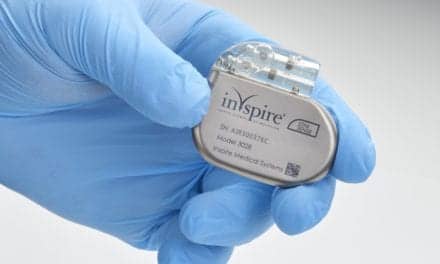A poster titled, “Using a Mobile App to Facilitate Patient-Doctor Discussions to Make Informed Decisions Regarding ‘Painsomnia‘” (abstract number PP01), was presented at the American College of Rheumatology/Association of Rheumatology Health Professionals Annual 2018 Meeting. CreakyJoints, a digital community and advocacy organization for arthritis patients and caregivers, sponsored the volunteer patient advocates who presented the poster.
Study co-author Shelley Fritz, her rheumatoid arthritis (RA) joint pain caused painsomnia—a popular patient-generated term stemming from online community (#SpoonieChat) discussions. Fritz’s present treatment plan includes an injection medication for rheumatoid arthritis, significant lifestyle changes, monthly physician exams, and related bloodwork.
After learning about the ArthritisPower Research Registry, a free patient-centered mobile and desktop app designed by CreakyJoints and the University of Alabama at Birmingham to track symptoms and disease progression over time, Fritz began to use it to better understand changes in her physical function and sleep quality.
“Over a six-month period, ArthritisPower helped me to track how my pain was connected to my fatigue, sleep quality, and even cognitive issues. Over time, I could see that days when I slept worse or felt more tired were linked to days I had more pain. ‘Painsomnia’ also hit during times that I reported more flare ups and illness, or used steroid medication,” says Fritz, a Florida-based teacher who is a CreakyJoints member and current ArthritisPower patient governor, in a release. “That data, along with notes I kept in the app, allowed me to better communicate my patterns and experiences to my doctor, which helped us look beyond lab tests and swollen joint counts to help me better manage my condition and live with more quality.”
ArthritisPower consists mainly of rheumatoid arthritis and psoriatic/spondyloarthritis patients (n>17,000, 2018) and is supported by the Patient-Centered Outcomes Research Institute (PCORI) and more than a dozen externally-funded studies. ArthritisPower users can elect to participate in research studies and/or use the app to track and share their disease progression and management by selecting aspect(s) of their health to track longitudinally from a library of more than 80 electronic patient-reported outcome measures including computer adaptive testing (CAT) PROMIS3 and rheumatology-specific instruments (eg, RAPID3, BASDAI, flare). Additionally, patients can log symptoms, record and set medication reminders, import lab test results, and share that data with their providers. ArthritisPower data are stored within the HIPAA-compliant Amazon Web Services’ cloud.
“Shelley’s ArthritisPower activity has put a vast amount of health information into her hands, allowing her to better work with her rheumatologist and communicate her experience to others living with chronic forms of arthritis,” says Seth Ginsberg, president and co-founder of CreakyJoints and co-principle investigator of ArthritisPower. “We are grateful to the ACR/ARHP team for recognizing the value that individual patient insights—like those from Shelley and her co-authors—can bring to the professional rheumatology community via their patient perspective poster program. For the second year, CreakyJoints members are serving as ‘special reporters’ at the annual ACR/ARHP meeting and we look forward to communicating about this and other patient-centered data being presented in Chicago.”
The co-authors for this study include CreakyJoints members Kristine Carandang and Dawn Gibson, who is also the founder of #SpoonieChat.
“The goal of the American College of Rheumatology’s Annual Meeting is to share research and innovations that provide the best care for our patients,” says Amanda Myers, MD, ACR committee on education member. “We understand that if our mission is to have real impact on our patients’ experience of disease and quality of life, we must include them in the conversation. We’re thrilled with the response our Patient Perspectives Poster Program generated among patients and associated organizations, and look forward to spotlighting and sharing their insights with our members through this unique poster program.”




